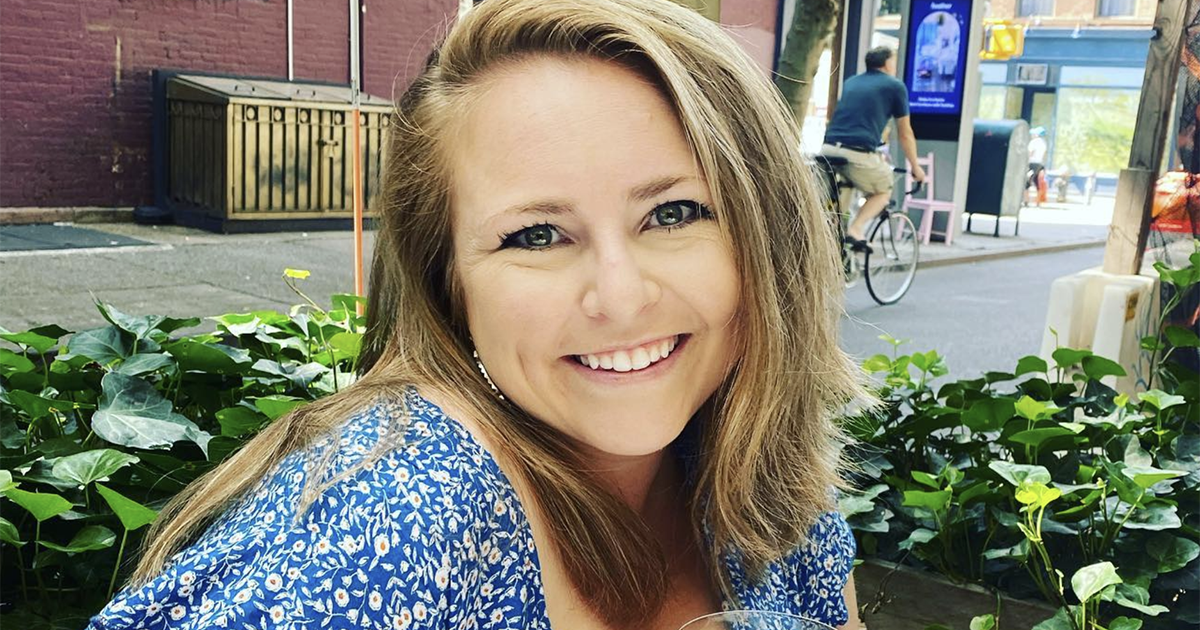The Importance of Advocating for Yourself
- One year has passed since Amanda Lee posted a video of herself, crying that a doctor dismissed her symptoms that later turned out to be colon cancer. She’s continuing to share her story to emphasize the importance of advocating for your own health.
- Lee was so taken aback by her doctor's comments that it threw her off course and could have even prevented her from getting a diagnosis. It is important to stand up for yourself if you feel that you're being dismissed or mistreated by a doctor.
- Getting a second opinion is crucial if something doesn't feel right. Luckily, Lee received the help she needed.
Lee, then 28, was unable to eat and dropped 35 pounds as a result. But when she went to a doctor describing her symptoms, he told her maybe her weight loss was a "blessing." And after sharing her story on social media and finding another doctor, who she made sure was a woman, Lee was diagnosed with stage 3 colon cancer.
Read More@mandapaints #cancer #fatphohia #doctorsoftiktok ♬ Epic Emotional – AShamaluevMusic
"I'm not saying the cancer outcome is normal. That's not normal. But the way he handled the situation is normal, and it is way too common. It's barbaric and something our medical system needs to change. If one woman wakes up tomorrow and hears my story and decides to find another doctor after a doctor had treated her poorly, then I have done my job."
As Lee said herself, her story is, unfortunately, not an uncommon one, enforcing the importance of advocating for yourself in the medical world.
In her anniversary video, posted on March 2, she said: "What baffles me the most is after I took this video (her first video posted a year ago), I proceeded to walk back into the doctor's office and demand an apology. I don't know who that girl is, who did that, but she's a badass, and she's gonna talk about this every day of her life. And I hope one day, somebody will actually listen."
Lee's cancer was found after a colonoscopy that her new doctor ordered. And the procedure revealed a large tumor, and the cancer had already spread to her lymph nodes. After her diagnosis, she began chemotherapy, and in August 2021, she was deemed cancer-free.
View this post on Instagram
Speaking recently with BuzzFeed about her story, she said: "The residual anxiety, trauma and grief have really been kicking my butt. I would probably say that it's almost as bad as the chemo was on my body."
Advocating for Yourself
Lee was so taken aback by her doctor's comments that it threw her off course and could have even prevented her from getting a diagnosis. It is important to stand up for yourself if you feel that you're being dismissed or mistreated by a doctor. Getting a second opinion is crucial if something doesn't feel right. Luckily, Lee received the help she needed.
Be Pushy, Be Your Own Advocate… Don't Settle
Dr. Zuri Murrell, a colorectal surgeon at Cedars-Sinai Medical Center, previously told SurvivorNet that sometimes, patients need to be pushy.
"From a doctor's perspective, every problem should have a diagnosis, a treatment, a plan for follow-up, and a plan for what happens next if the treatment doesn't work," Dr. Murrell said.
And as a patient, "if you don't feel like each of these four things has been accomplished, just ask! Even if it requires multiple visits or seeing additional providers for a second opinion, always be your own advocate."
Getting a Colonoscopy to Diagnosis Colon Cancer
When you have a colonoscopy for colon cancer screening, the gastroenterologist performing the procedure is looking at the inside of your colon to detect polyps.
Polyps are small growths in the colon that aren't yet cancerous, but have the potential to develop into cancer. A polyp that's found during a colonoscopy is removed, which can actually prevent the development of cancer. A pathologist determines if it is a benign polyp or if it is colon cancer. Most polyps (about 95%) that are removed are precancerous, meaning that they have not yet progressed to cancer.
Looking for Polyps During Colonoscopy
In Lee's case, if she would've gotten a colonoscopy sooner, her cancer could have potentially been prevented, or caught earlier. Many people hold off on getting a colonoscopy because of the perceived discomfort or embarrassment of the situation. That's why it is helpful to know that it is a painless procedure.
"When we see a polyp, we actually physically take the polyp out through the colonoscope," Dr. Murrell said. "That means we basically put a wire through with a little bit of a little flange at the end, and we pull the polyp out. Now, note there is no pain with that. Inside the colon, there are no pain fibers. So there's no pain."
When they take the polyp out, they send it to a lab.
"A pathologist basically cuts up the little polyp and looks under a microscope," Dr. Murrell explained. "And underneath the microscope, they can decide whether or not it is early cancer or whether it is just a precancerous polyp."
"But it would have been a cancer ultimately if you just let it grow and grow and grow," he continued. "Well, guess what? Now that it's out of your body, there is no more risk for that polyp to become a cancer."
Contributing: Marisa Sullivan
Learn more about SurvivorNet's rigorous medical review process.

